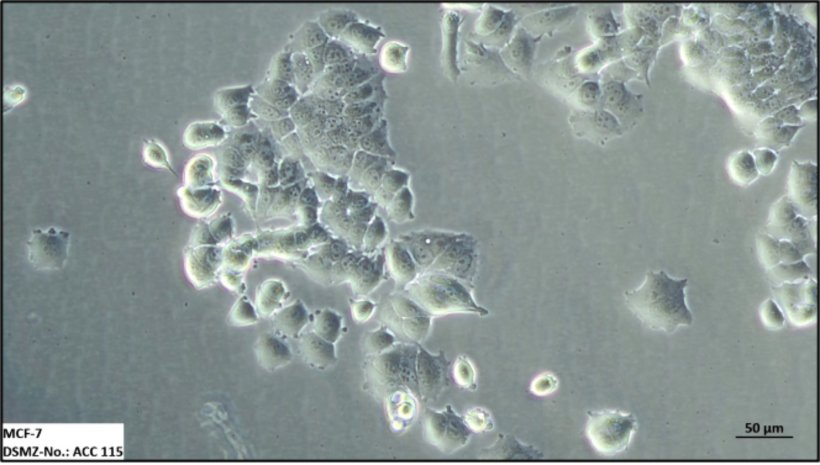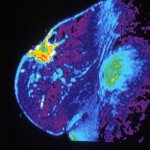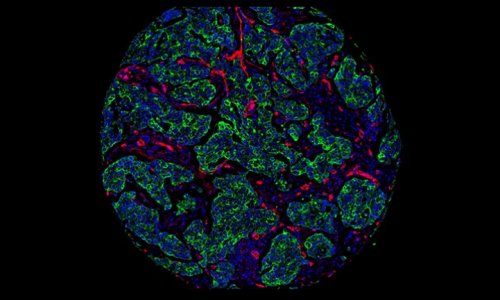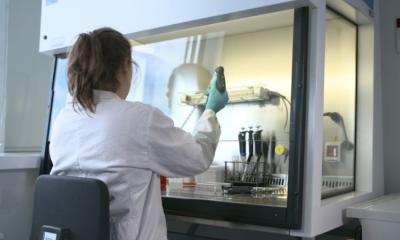
Image source: DSMZ
News • Characterization of cancer relevant genes
Breast cancer: Researchers take a deep dive into cell lines
Results enable research on better breast cancer treatment options
Cell lines are an important in vitro model in breast cancer research. A team around biochemist Dr. Sonja Eberth and bioinformatician Dr. Claudia Pommerenke from the Leibniz Institute DSMZ-German Collection of Microorganisms and Cell Cultures GmbH (Braunschweig, Germany) has extensively characterized the molecular properties of the breast cancer cell lines from the institute's collection. The results of the study, recently published in the journal Cells, allow the individual breast cancer cell lines to be assigned to the known clinically relevant breast cancer subtypes and provide insights into potentially new tumor-relevant genes. DSMZ is the first cell bank in the world to perform its own characterization of cancer cell lines using high-throughput sequencing, to publicly present the molecular data and to make it available to the scientific community via DSMZCellDive.
Breast cancer is the most common cancer in women worldwide. However, breast cancer is not a uniform disease, as there are many different types. These subtypes exhibit different molecular alterations, for example in relation to the activity of hormone receptors, which are very important for diagnosis, treatment and prognosis. To better understand these alterations in cancer cells and establish new targeted approaches for therapy, in vitro models such as human cancer cell lines are indispensable in breast cancer research. These cell lines can grow almost indefinitely in a culture medium in the laboratory and be used for experiments. However, for research results to be meaningful and interpretable, it is essential that a suitable model is used that can actually represent the tumor type under investigation with its molecular alterations.
Recommended article

Article • Research, diagnostics, treatments
Focus on breast cancer
Breast cancer (breast carcinoma; often abbreviated as BRCA) is the most common cancer in women in many countries and the cancer with the highest mortality rate. The diagnostic and therapeutic options for breast cancer are correspondingly diverse. Keep reading for latest developments in early detection, staging, treatment and research.
The cell line collection of the DSMZ comprises more than 700 different human cancer cell lines for research purposes, including cell lines established from different primary or metastatic breast tumors. Scientists from the DSMZ and the Hannover Medical School have now extensively studied and newly characterized the 29 breast cancer cell lines in the collection using various state-of-the-art methods. The molecular characteristics of the cell lines gained in this project will make it even easier for researchers worldwide to select suitable models for their breast cancer studies.
The data collected in the study is presented interactively on the open access web tool DSMZCellDive, a component of the DSMZ Digital Diversity Platform. Researchers can precisely check for each individual gene whether and in which breast cancer cell lines it is expressed. This further optimizes the process of selecting suitable model cell lines for a specific research question. The cell lines with the appropriate characteristics can then be ordered from the DSMZ for research purposes.
Source: Leibniz Institute DSMZ-German Collection of Microorganisms and Cell Cultures
20.03.2024











